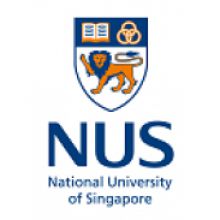Start-ups happen in the business world all the time. They have an elaborate mythology, often associated with the biography of the most charismatic of the founders, from Henry Ford to Steve Jobs. The transformation of a founding idea into a corporate behemoth is a drama that produces best-selling pop analyses, hagiographic biographies, tell-all movies and more, all providing inspiration to the next generation of entrepreneurs.
At Yale-NUS College in Singapore we experienced it all, too: the excitement of the early days, pushing a “product” that didn’t yet exist; persuading early “investors” (eg, students, faculty and staff) to sign on; the ferocious 24/7 work patterns; the constant anxiety and moments of despair; the battles between the visionaries and those who focused on making things run effectively; and in the end the deep pride and satisfaction of creating a thriving operation that involves thousands of people, and will surely outlive all of its founders. We had everything except the stock options.
When the president of Yale University first discussed the possibility of what would eventually become Yale-NUS College, he said to me: “How would you like to reinvent the liberal arts with no constraints?” It was a very enticing notion – the idea that without the weight of tradition and already existing policies and people, one could start fresh, and do it right.
But, looking back on the experience, what the president said to me was exaggerated. We did face constraints, not in the form of the traditions of an existing institution, but from the traditions of academic life more generally. We succeeded in doing some new things, which have become hallmarks of the new college, but there were also things we tried that didn’t quite succeed in breaking the mould, and other areas in which we didn’t even make the attempt.
One success story was the creation of a global comprehensive common curriculum. Our students study Confucius alongside Aristotle, the Ramayana alongside Homer. Just as important, they receive comprehensive introductions to the social and natural sciences. This brings together both the faculty and the diverse student body in a common purpose, and ensures that Yale-NUS graduates, when they eventually emerge, will be familiar with a full range of cultures and disciplines. This took a lot of work, but it was well worth it.
Another successful new initiative was a focus on experiential learning and a knitting together of curricular and co- and extracurricular activities. Our leadership programmes, study abroad opportunities and career counselling services are part of a single office, the Centre for International and Professional Experience (CIPE), which all our students experience as a central part of their education. All students are assigned a CIPE counsellor as soon as they arrive on the campus, who helps them access the many opportunities for study outside the classroom, and weaves them into an intentional programme that supports and furthers their interests and ambitions.
We also ask our students to present and describe these experiences, to prompt reflection on their part, and to bring those experiences into the lives of their classmates and teachers. From study trips during orientation and the seventh week of classes, to summer and semester study abroad, to workshops of all sorts and seminars on employment possibilities, our students construct a life of learning outside the classroom as carefully considered as the academic programme as such.
We tried other departures from the standard model. For example, Yale-NUS has no academic departments. Disciplinary departments may be necessary for graduate study, in which the whole point is to train students in the disciplines, but for the vast majority of undergraduates who will not go on to life in academia, departments can sometimes lead to narrow approaches designed to train adepts in a field rather than to further education in ways that will benefit students as they embark on a life of varied and ever-changing personal and career opportunities.
Abandoning disciplinary departments brought with it some real advantages, particularly for interdisciplinary majors such as environmental studies, global affairs and urban studies, which did not need to petition existing units for faculty positions or other resources, and thus had a rare freedom of action. But, in the end, it proved hard to resist the creation of silos. While faculty members are not assigned to disciplinary departments, they tend to become “affiliated” with one or another of the majors. So the goal of a truly interdisciplinary faculty remains a work in progress.
Similarly, we went some ways toward combatting the “tyranny of the semester”. Not all topics and subject matters fall neatly into units appropriate for a semester-long course with three to four contact hours per week, and with the advent of online learning, many other models are available. So we have half-courses, courses linked to students and instructors far away, independent study modules, and week-long mini-courses that provide opportunities for academic study with a different structure. But we did not go nearly as far as institutions such as Quest College in Canada or Colorado College in the US, which have abandoned the semester altogether for other models. And in the end, partly due to the opportunities created by cross-registration with NUS, our academic calendar runs along standard lines.
There are also some aspects of academic life that we deliberately chose to maintain. We have a tenure-track system, with up-or-out promotion for junior faculty in the sixth or seventh year, which is deliberately designed to emulate those of other leading liberal arts colleges. There is reason to question the efficacy of this system in a world in which scholars in their thirties can no longer expect to be supported by a stay-at-home spouse who manages the household and the children. But, in the end, the competitive pressures of recruiting faculty to a new institution required us to have an easily described system comparable to those of others. At least we have resisted the degradation of this system into a shadow of its former self in which the vast majority of the teaching is done by under-compensated adjuncts – 85 per cent of our faculty are either tenured or on the tenure track, and many of the others have full-time positions with benefits and long-term contracts.
Thus, in the end, we have brought some new approaches into being, while at the same time maintaining, for better or worse, some of the traditional structures of academic life. One could not reasonably hope for more: no institution, no matter how forward-looking and innovative, can hope to change everything at once.
What one could hope for is that more academics would have the chance we had to start anew. Others would make different choices, and those new approaches deserve a chance to prove themselves, in academia as they do in business. We cannot simply perpetuate traditional models if we are to thrive in the changing world of the 21st century.
Charles Bailyn is dean of faculty at Yale-NUS College in Singapore, and the A. Bartlett Giamatti professor of astronomy and physics at Yale University.
Register to continue
Why register?
- Registration is free and only takes a moment
- Once registered, you can read 3 articles a month
- Sign up for our newsletter
Subscribe
Or subscribe for unlimited access to:
- Unlimited access to news, views, insights & reviews
- Digital editions
- Digital access to THE’s university and college rankings analysis
Already registered or a current subscriber?








